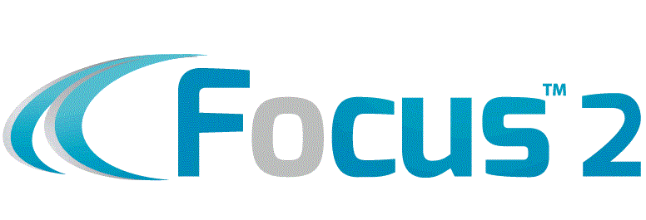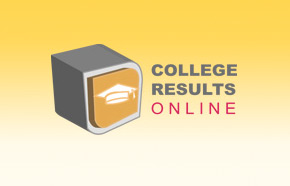IB vs AP Classes
Is your future college student wasting time taking the wrong High School Classes?
One of the strategies to getting in and out of college in 4 years is to take college credit work while still in High School (don't take to many or you'll be disqualified for some aid). But if your kid is taking IB classes in High School will he/she get college credit or not?
Despite IB Growth, College Credit Is Elusive
IB students "are getting the very best scores possible and are not seeing any recognition at most colleges," says Marilyn Leeb, an IB coordinator in Arlington County. (By Leah L. Jones -- For The Washington Post)
"We were being cheated," says Chad King, a Mount Vernon High graduate who got no college credit for IB.
Across the Washington area, International Baccalaureate is booming, with more than two dozen high schools offering the college-level program and more signing up all the time. College admissions officers say they love seeing IB courses on transcripts. Students say the IB writing instruction and five-hour, end-of-course exams prepare them well for higher education.
But there's a catch: Students usually can't get college credit for one-year IB courses, even though they are similar to one-year Advanced Placement courses, which are eligible for credit. In another complication, students can get credit for passing tests after two-year IB courses, but that credit is equivalent to one year in AP.
Most university officials say they can't explain these discrepancies. In many local high schools, bewilderment and frustration are growing among students and teachers over college policies about IB that seem at odds with the colleges' oft-stated support for more challenging high school curricula.
"Imagine the consternation of these students who are getting the very best scores possible and are not seeing any recognition at most colleges," said Marilyn Leeb, IB coordinator at Washington-Lee High School in Arlington County.
"I feel like we were being cheated," said Chad King, a 2007 graduate of Mount Vernon High School in Fairfax County who received no credit for one-year IB courses from Ohio Dominican University in Columbus. "IB puts a lot of stress and pressure on its students, and for us not to get credit just because it is not AP is unfair."
Older and larger, AP was created a half-century ago by the nonprofit College Board, based in New York and maker of the SAT. AP is used in about 60 percent of U.S. high schools. IB, with headquarters in Geneva, was invented by teachers in Europe 40 years ago and is in about 500 U.S. schools, but it has become popular in the Washington area. Research shows that students who do well on college-level courses in high school do better in college. But some IB teachers fear that the credit quandary will discourage some students from seeking the challenge.
Most college admissions officers know the IB program well and say they recruit IB students as eagerly as they do AP students. But those officers don't decide course credit policy. College academic departments do. Few of the professors appear to know much about IB or AP, so they typically fall back on rules instituted years before. IB spokesman Paul Campbell said most universities follow a policy suggested 30 years ago by a committee of college-credit experts that made no attempt to see how one-year IB courses compared to AP, which has only one-year courses.
Calls and e-mails to 16 higher education institutions in Maryland, Virginia and the District found only two, Trinity Washington University and George Mason University, that treat one-year IB the same as AP.
One local university official, explaining why the programs are treated differently, cited a recent report that IB does not consider its one-year courses to be college level. The International Baccalaureate Organization has denied making such a statement.
To bolster their argument for credit, IB educators in the Washington region cite a November study from the Washington-based Thomas B. Fordham Institute. After asking experts to compare AP and IB English, math, biology and history courses, the study concluded that one-year IB and AP courses were about the same in content and rigor.
Some college officials said they would review IB and AP credit policies in light of the Fordham study.
"I don't have any data," said Tom Husted, associate dean of academic affairs in American University's College of Arts and Sciences. Asked why one-year IB courses receive no credit, he said, "I don't know exactly why."
"St. Mary's is in the early stages of our review," said Wesley P. Jordan, dean of admissions and financial aid at St. Mary's College of Maryland. "I have not yet done a thorough review of the assessment literature, so I don't know what exists" for one-year IB courses.
Some also suggested that the College Board lobbies for its courses more energetically than the IB organization, whose North American office is in New York, does for its programs.
The debate over AP and IB is flaring in western Fairfax County as some parents fight a redistricting plan by the school system that would increase the students at South Lakes High School in Reston. Because South Lakes is an IB school, some parents who oppose new school boundaries are complaining about college policies against giving one-year IB credit. IB educators say their students are often allowed, even without college credit, to take higher-level courses in college once they pass a placement test. Some parents remain skeptical.
"Occasionally, we lose students because parents fear IB is somehow a lesser education, largely because they perceive that universities do not give it the same credence," Lisa B. Green and Wendy Vu, IB coordinators at Robinson Secondary School in Fairfax, wrote in an e-mail. "We think the discrimination is largely due to ignorance. College and university people have not taken the time to explore the curriculum in more detail."
Leeb said some of her students have begun IB information campaigns in college, taking the IB syllabus and samples of the five-hour final exams to department offices and winning concessions. "But not every college freshman has the time or energy to navigate through the NASCAR-style system at some college to get to department chairs and argue the case," Leeb said.
Some students have taken drastic measures. Beth Groeneman, IB coordinator at Bethesda-Chevy Chase High School in Montgomery County, said one of her students enrolled in 2006 at a small Midwestern university that had heavily recruited her. But the university refused to give credit for her IB courses. The student grew so frustrated that she transferred to a more prestigious Southern university that granted all of her credits.
In several local schools, particularly in Montgomery, IB students often take the AP test in the same subject to be assured of college credit. To some educators, that seems a waste of time. "Our emphasis is not on gaining college credit," said Greg Croghan, principal of Fairfax's Edison High School, which has IB. "It is on encouraging students to extend themselves intellectually and on preparing for college."
Many colleges will give credit for one-year IB courses if they are among the six required for a full IB diploma. But those rules don't apply to AP, in which a course can receive credit even if it is the only AP class a student takes.
Anthony Cruz-Martinez, a graduate of Mount Vernon High, is one of the few local IB students who has won credit for his one-year IB courses. He said the registrar at St. Martin's University in Lacey, Wash., looked confused at first when he sought credit for the courses. Cruz-Martinez is not certain how it happened, but the credit came through.
At St. Martin's, Cruz-Martinez said, "I was able to get into third-year classes in history and English with no issue whatsoever, and I have found that it is nowhere near as difficult as any of my IB classes or exams."
(article first appeared in the Washington Post By Jay Mathews)





